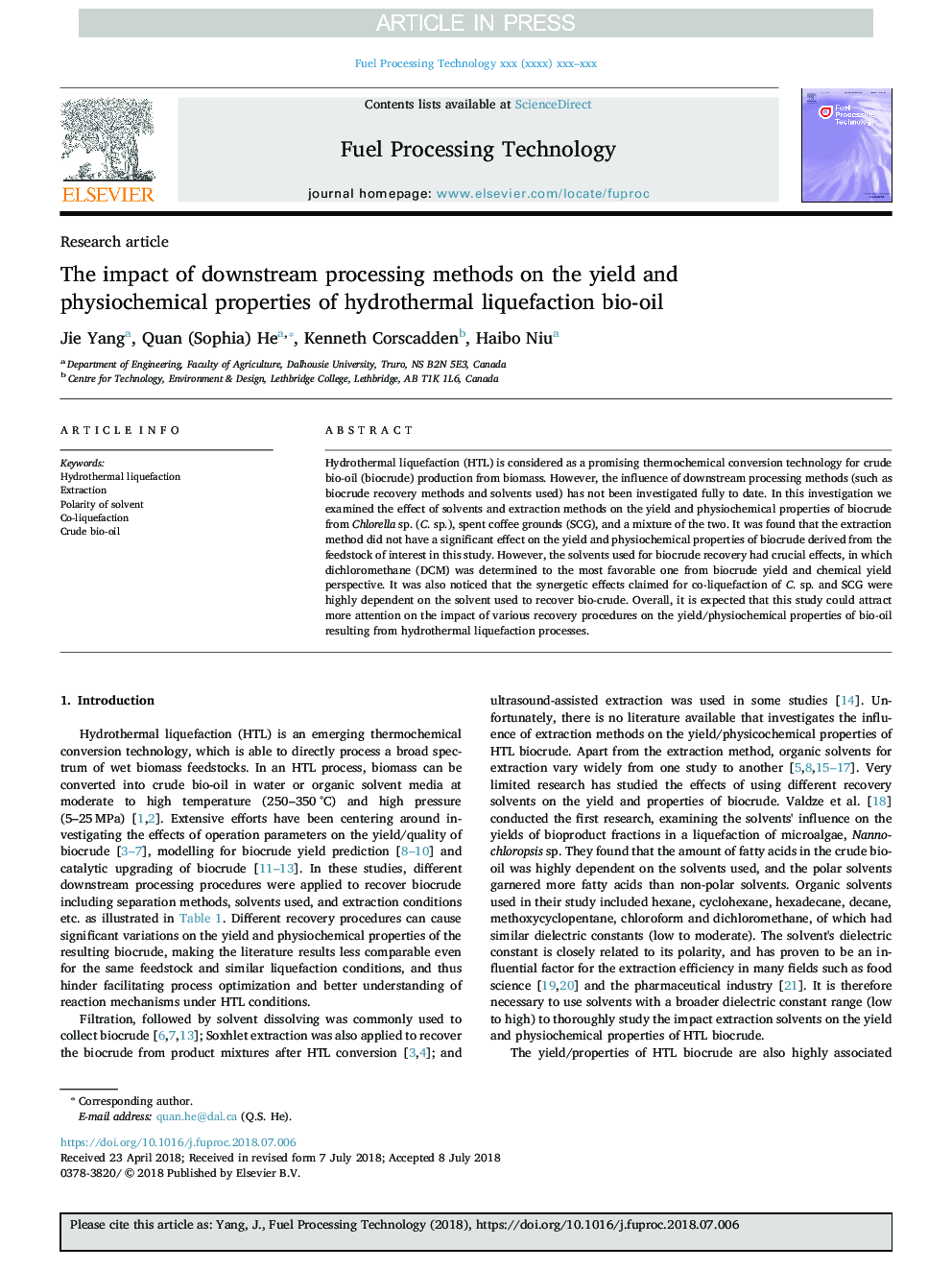| Article ID | Journal | Published Year | Pages | File Type |
|---|---|---|---|---|
| 6656303 | Fuel Processing Technology | 2018 | 9 Pages |
Abstract
Hydrothermal liquefaction (HTL) is considered as a promising thermochemical conversion technology for crude bio-oil (biocrude) production from biomass. However, the influence of downstream processing methods (such as biocrude recovery methods and solvents used) has not been investigated fully to date. In this investigation we examined the effect of solvents and extraction methods on the yield and physiochemical properties of biocrude from Chlorella sp. (C. sp.), spent coffee grounds (SCG), and a mixture of the two. It was found that the extraction method did not have a significant effect on the yield and physiochemical properties of biocrude derived from the feedstock of interest in this study. However, the solvents used for biocrude recovery had crucial effects, in which dichloromethane (DCM) was determined to the most favorable one from biocrude yield and chemical yield perspective. It was also noticed that the synergetic effects claimed for co-liquefaction of C. sp. and SCG were highly dependent on the solvent used to recover bio-crude. Overall, it is expected that this study could attract more attention on the impact of various recovery procedures on the yield/physiochemical properties of bio-oil resulting from hydrothermal liquefaction processes.
Related Topics
Physical Sciences and Engineering
Chemical Engineering
Chemical Engineering (General)
Authors
Jie Yang, Quan (Sophia) He, Kenneth Corscadden, Haibo Niu,
